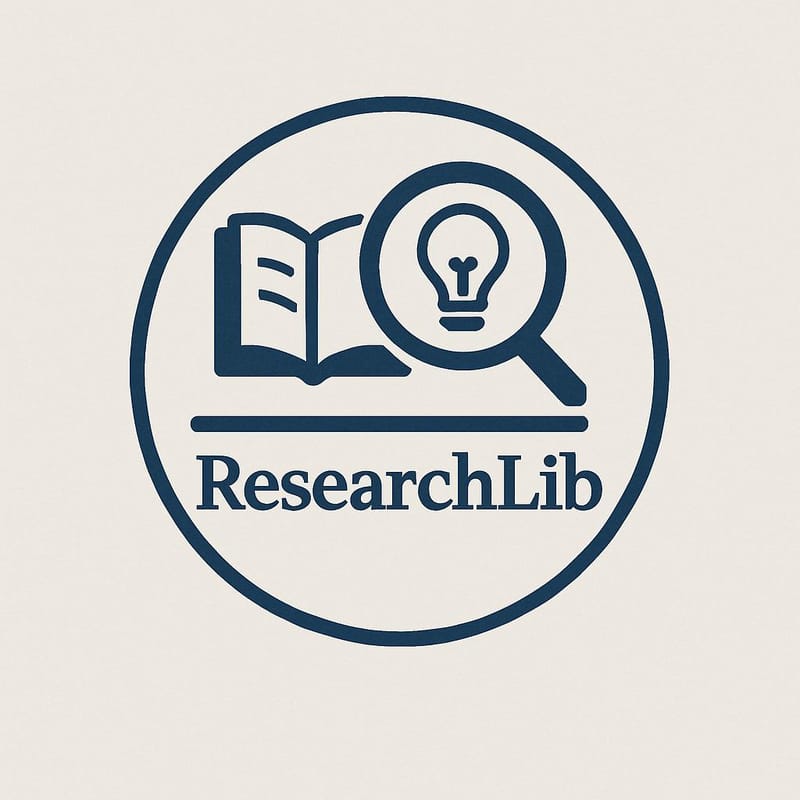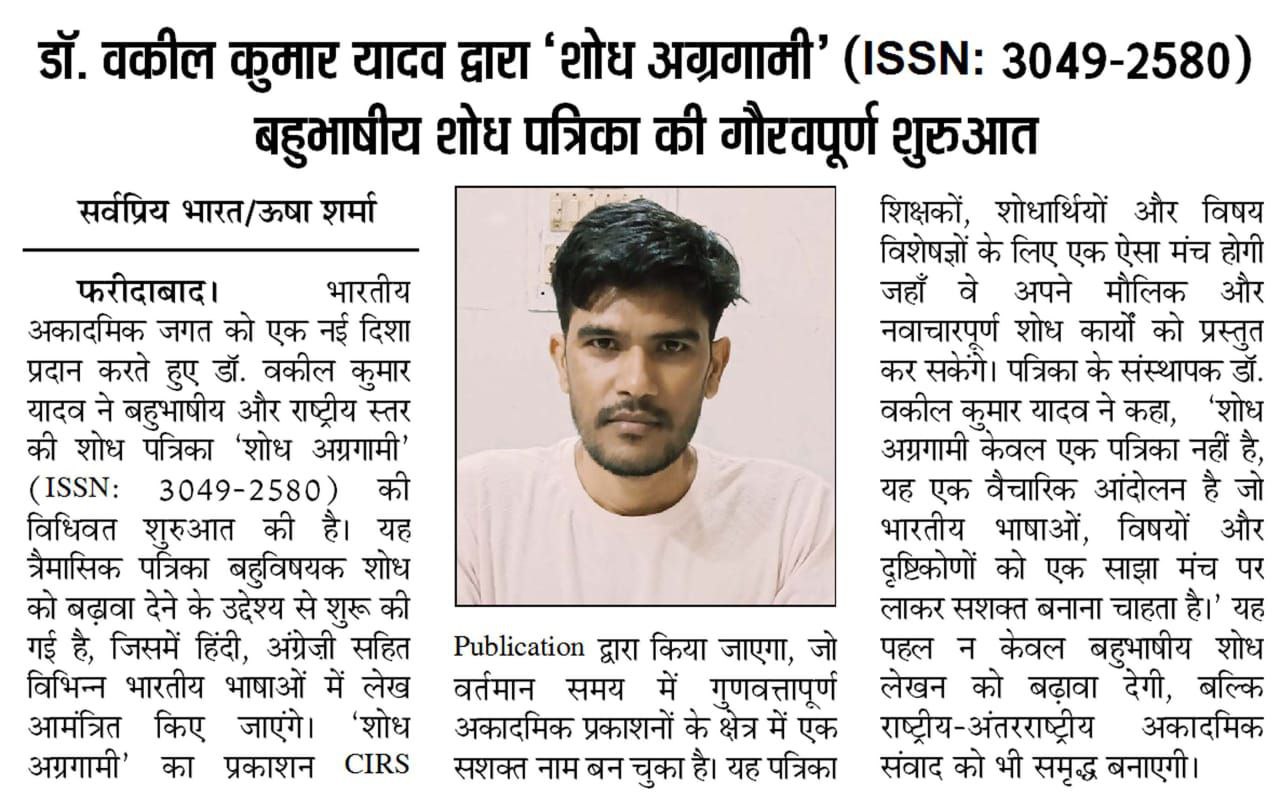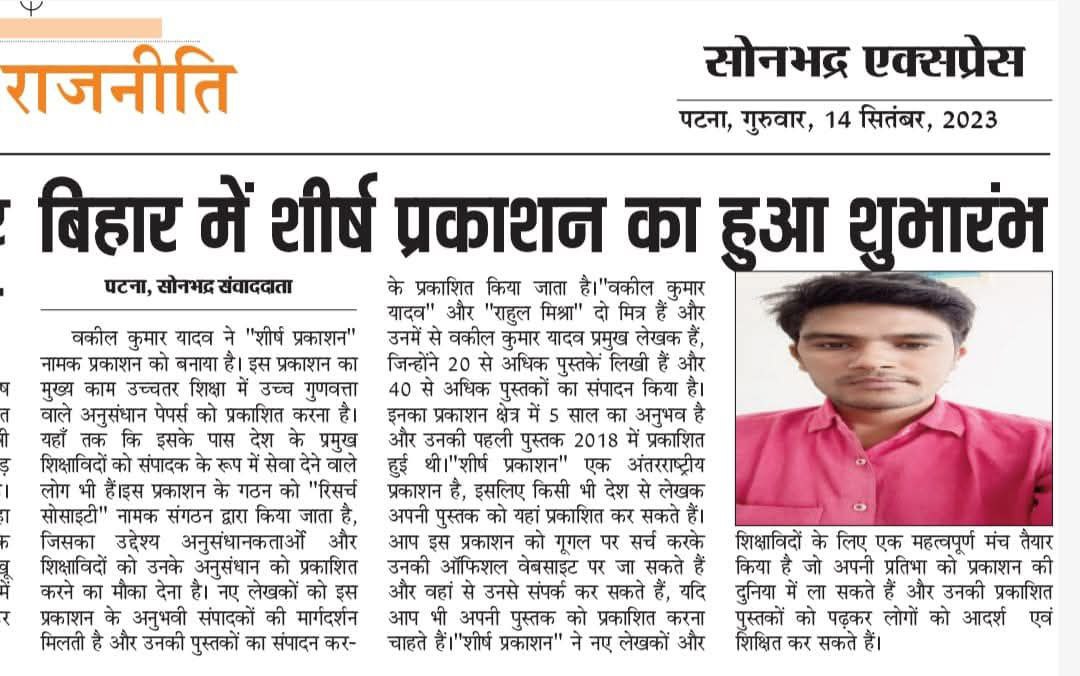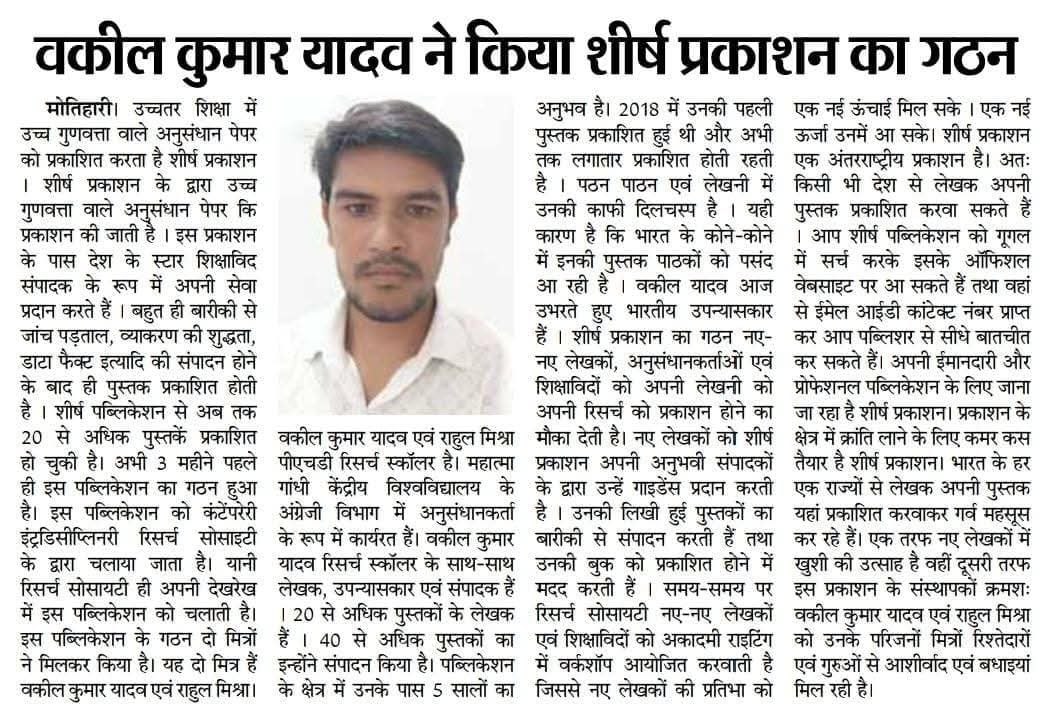Welcome to ResearchLib, an international multidisciplinary print journal dedicated to advancing scholarly research across diverse fields. Published quarterly by CIRS Publication, our peer-reviewed journal provides a dynamic platform for researchers and academics from around the globe to share groundbreaking work and foster innovative discourse. Global Research Syntho is committed to the highest standards of academic excellence through a rigorous peer review process.
Multidisciplinary research is essential as it bridges gaps between traditional academic boundaries, fostering a more holistic understanding of complex issues. By integrating diverse methodologies and perspectives, such research addresses multifaceted challenges more effectively and innovatively. In an increasingly interconnected world, the collaboration between disciplines not only enhances the depth and breadth of scientific inquiry but also accelerates the development of solutions that can address global problems comprehensively. ResearchLib is dedicated to facilitating such interdisciplinary dialogue, reflecting the critical role of multidisciplinary approaches in advancing knowledge and driving societal progress. Join us in our commitment to synthesising knowledge and shaping the future of academic research. The journal will be published in the following Quarterly schedule: January-March, April - June, July - September, October- December.
- Title: ResearchLib
- Frequency: Quarterly
- ISSN: 3107-6114 (Print)
- Type: International
- Publisher: CIRS Publication
- Chief Editor: Dr. Mohammad Afsar Alam
- Copyright: CIRS Publication
- Starting Year: 2025
- Subject: Multidisciplinary
- Language: English
- Publication Format: Print
- Charges: 300 rupees
- Mobile No.: 9162681504
- Email ID: publish@cirsp.com
- Website: cirsp.com
- Address: Lohaganjar, Post-Chhitanpur, District-Siwan, Pin-841245, State-Bihar, Country: India.
Our Editorial Board
Dr. Mohammad Afsar Alam
Associate Professor, Department of Geography, Faculty of Natural Sciences, Jamia Millia Islamia, Jamia Nagar, New Delhi- 110025
Email: malam18@jmi.ac.in
Profile Link: All Faculty - Jamia
José Manuel Ivo Carvalho Vicente
Assistant Professor, School of Economic and Organizational Sciences
Lusofona University, Campo Grande, 3761749-024 Lisbon, Portugal
Email: p3807@ulusofona.pt
Profile Link: José Manuel Ivo Carvalho Vicente — Intrepid Lab
Natka Jankova Alagjozovska
Assistant Professor, Faculty of Philology, Goce Delcev University, Krste Misirkov Streer, No.10-a Stip Republic of North Macedonia
Email: natka.alagozovska@ugd.edu.mk
Profile Link: https://scholar.ugd.edu.mk/natka.alagozovska/people/alagjozovska-jankova-natka
Dr. Sashka Jovanovska
Associate Professor, Faculty of Philology, Department of English Language and Literature Office: Campus 4 (4th floor), P.O. Box 201, 2000 Štip, North Macedonia.
Email: saska.jovanovska@ugd.edu.mk
Profile Link: Сашка Јовановска / Sashka Jovanovska
Dr. Ravinesh Prasad
Assistant Professor, Section: Humanities and Education, Fiji National University (FNU), P. O. Box 7222,
Email: ravinesh.prasad1@fnu.ac.fj
Profile Link: Fiji National University
Dr. Samir Dey
Associate Professor & HOD, Department of Mathematics, JIS University, Agarpara, Kolkata-700109
Email: samir.dey@jisuniversity.ac.in
Profile Link: https://jisuniversity.irins.org/profile/211795
Dr. Pallavi Singh
Assistant Professor, Department of Law and Governance at Central University of South Bihar, Gaya-824236, Bihar
Email pallavisingh@cusb.ac.in
Profile Link: https//www.cusb.ac.in/index.php?option=com_content&view=article&id=418&Itemid=542
Dr. Priyanshi Gupta
Assistant Professor, Department of Humanities and Social Sciences, Integral University, Dasauli, Bas-ha Kursi Road, Lucknow(U.P.) – 226026
Email: priyanshig@iul.ac.in
Profile Link: Faculty Members - Department of Humanities & Social Sciences | Integral University Lucknow
Dr. Wakil Kumar Yadav
Has completed Ph.D. in English from Mahatma Gandhi Central University Bihar-845401 Former Assistant Professor, Department of Basic Science and Humanity, B.A College of Engineering and Technology, Ghutia, Jamsedpur-832304 Currently not working. On leave Authored 6 books, written 2 Novels, and edited 16 books.
Email: mgcu2019engl6006@mgcub.ac.in
Our editorial board brings together a wealth of experience and expertise across various domains. They work collaboratively to uphold the standards of our journal and provide a platform for diverse voices. We are grateful for their dedication to making Global Research Syntho a space where impactful ideas thrive. Your feedback and contributions are always welcome as we strive to create an enriching experience for our readers and contributors alike.
Thank you for considering your contribution to our journal. To ensure a smooth and enjoyable experience for both writers and readers, please adhere to the following submission guidelines:
Submission Guidelines
- Content Quality:
- We welcome well-researched, original, and engaging content.
- Submissions should be free of plagiarism and written in a clear and concise style.
- Formatting:
- All submissions should be in a readable font (e.g., Times New Roman) and size (12 points).
- Use standard formatting guidelines with proper headings and subheadings to enhance readability.
- Word Count:
- Submissions should be a minimum of 2000 words and can go up to 4000 words. Ensure your content is comprehensive while avoiding unnecessary verbosity.
- APA Referencing:
- If your submission includes references, follow the APA (American Psychological Association) style for citations. Include a reference list at the end of your article.
- Images and Multimedia:
- If your submission includes images or multimedia content, ensure they are high quality and relevant. Provide proper attribution for any third-party visuals.
- Originality:
- Ensure that your submission is original and has not been published elsewhere. We appreciate fresh perspectives and unique insights. Plagiarism should be less than 10 percent. Must follow UGC guidelines.
- Language:
- Submit content in English, using proper grammar and spelling. Avoid the use of offensive language or discriminatory content. Must follow British English.
- Submission Process:
- Please send your submissions in a Word document or compatible format to [publish@cirsp.com].
- Use the subject line: "Journal Submission: [Title of Your Submission]."
- Response Time:
- We aim to respond to submissions within [one] week. Feel free to follow up if you haven't heard from us within this timeframe.
- Rights:
- To facilitate the unrestricted sharing and use of published research, all articles are licensed under a Creative Commons Attribution (CC BY) License. This license allows others to distribute, remix, adapt, and build upon your work, even commercially, as long as proper credit is given to the original authors. By submitting your work, you grant us the right to edit, publplatform.romote your content on our platform.
We appreciate your interest in contributing to our journal. Your unique voice and insights contribute to the diversity and richness of our content. If you have any questions or need further clarification, please don't hesitate to reach out. For any query mail us at {info@cirsp.com}




